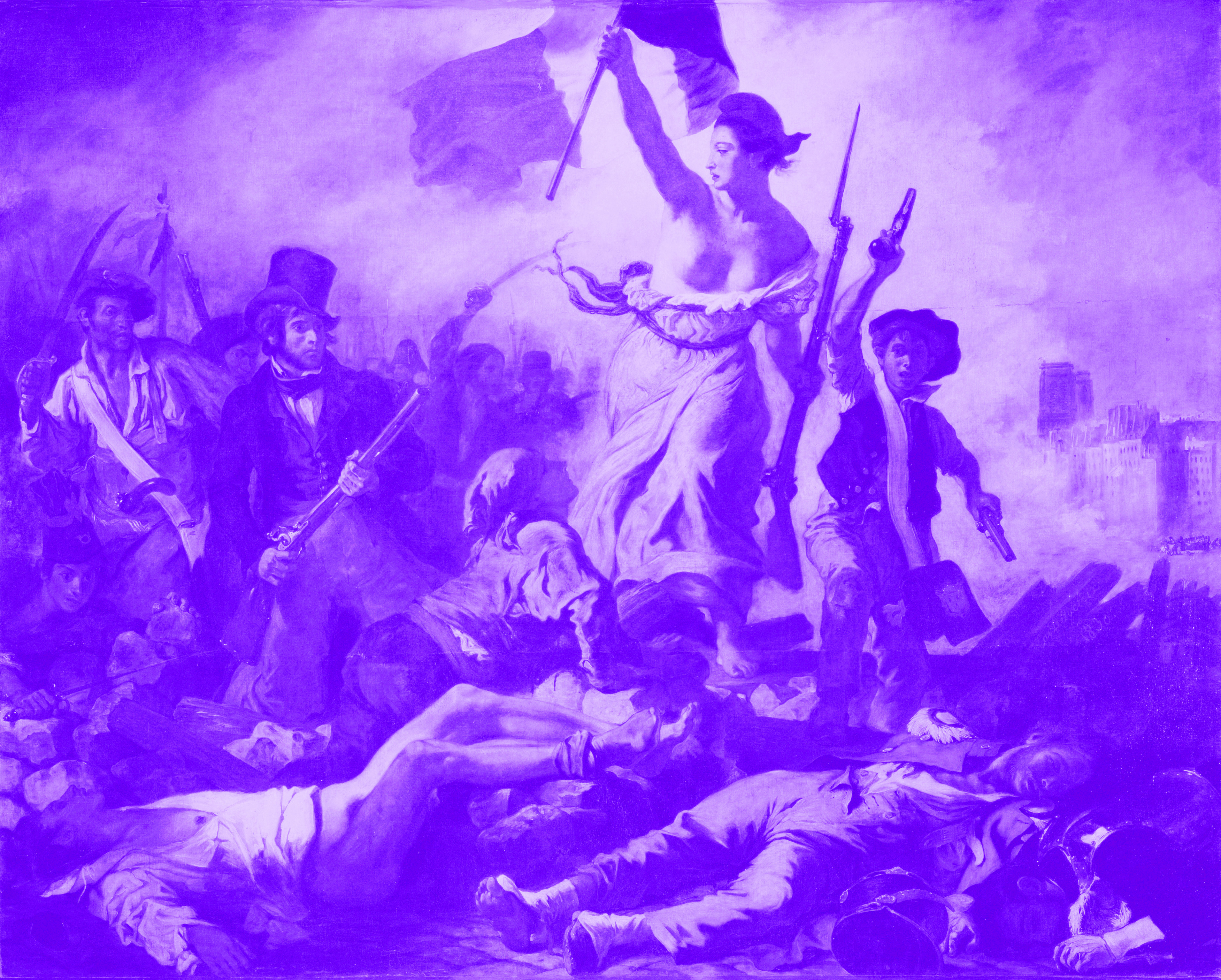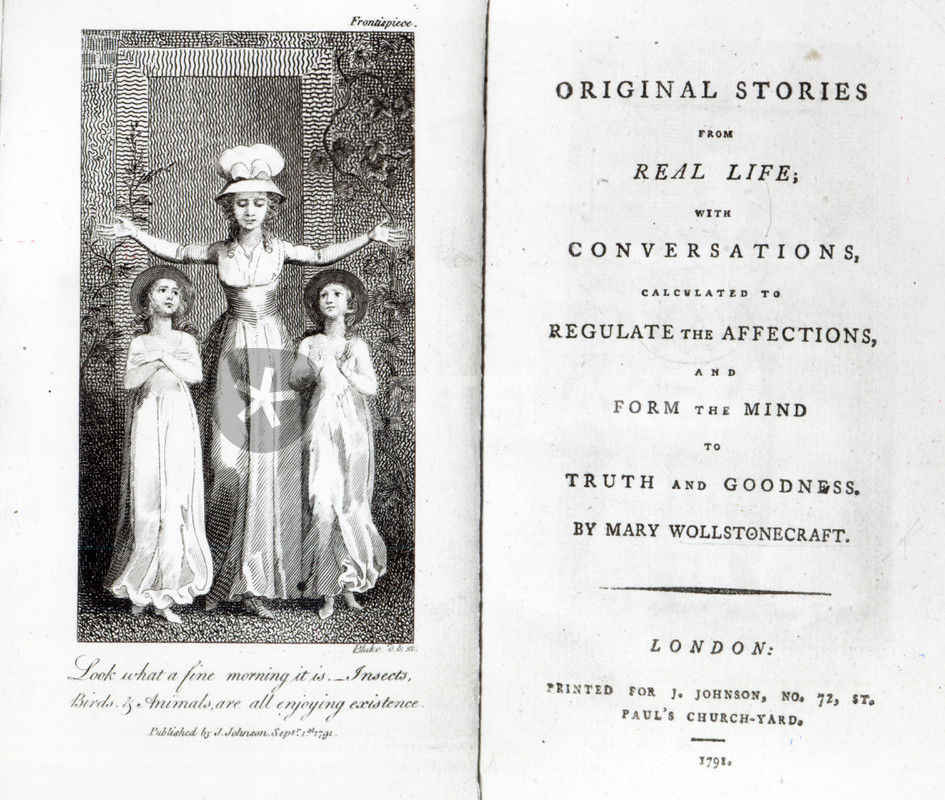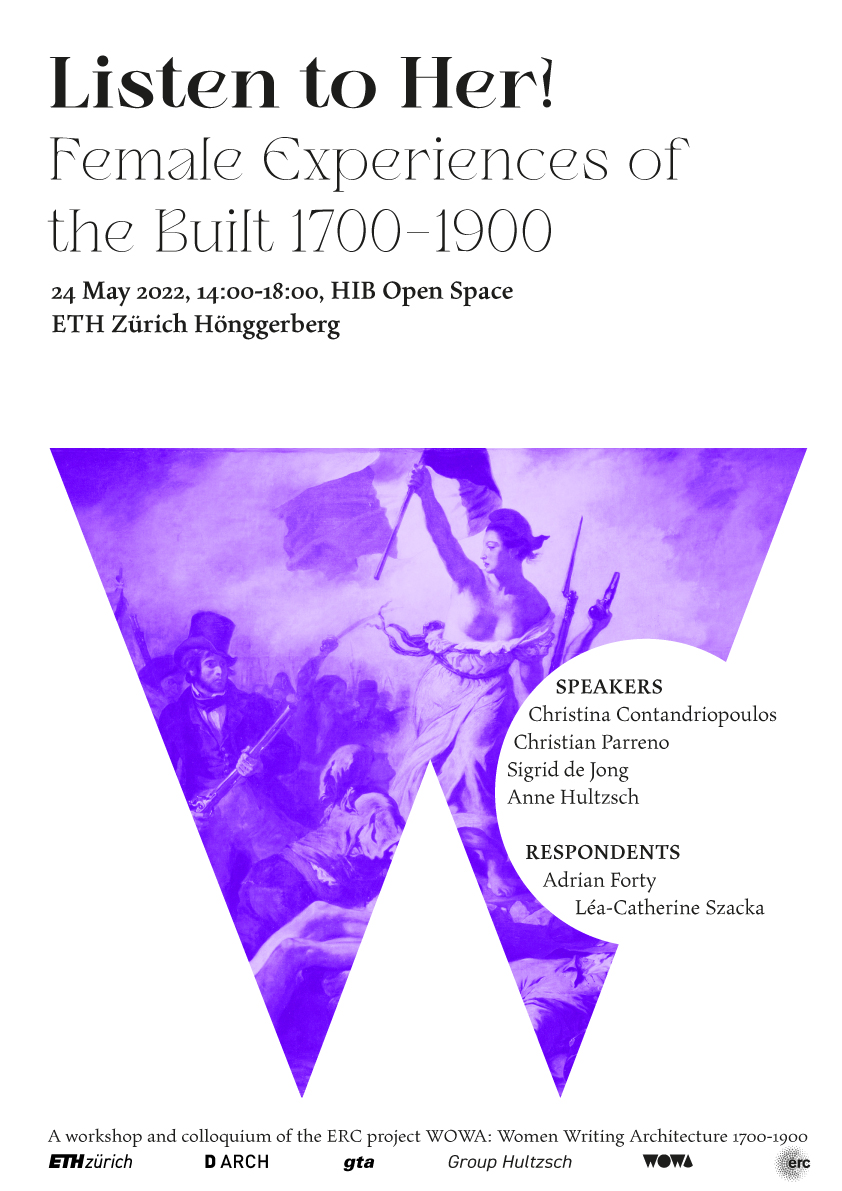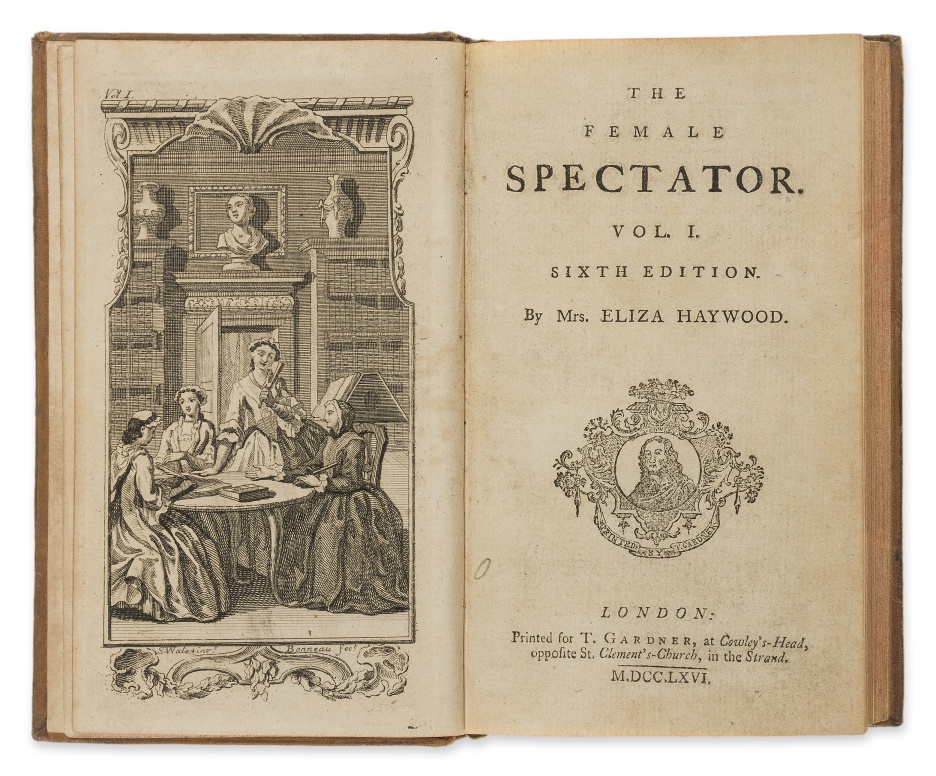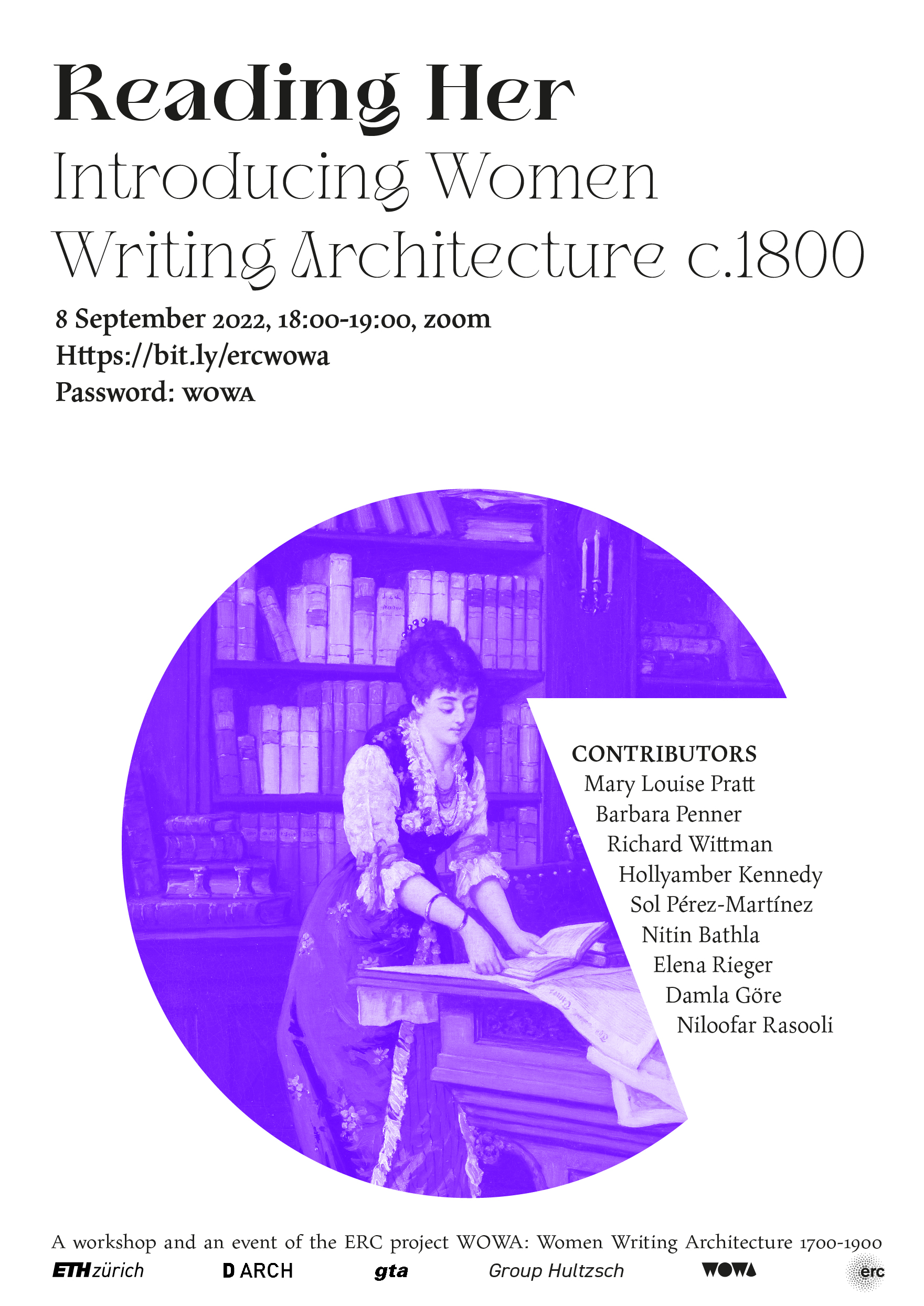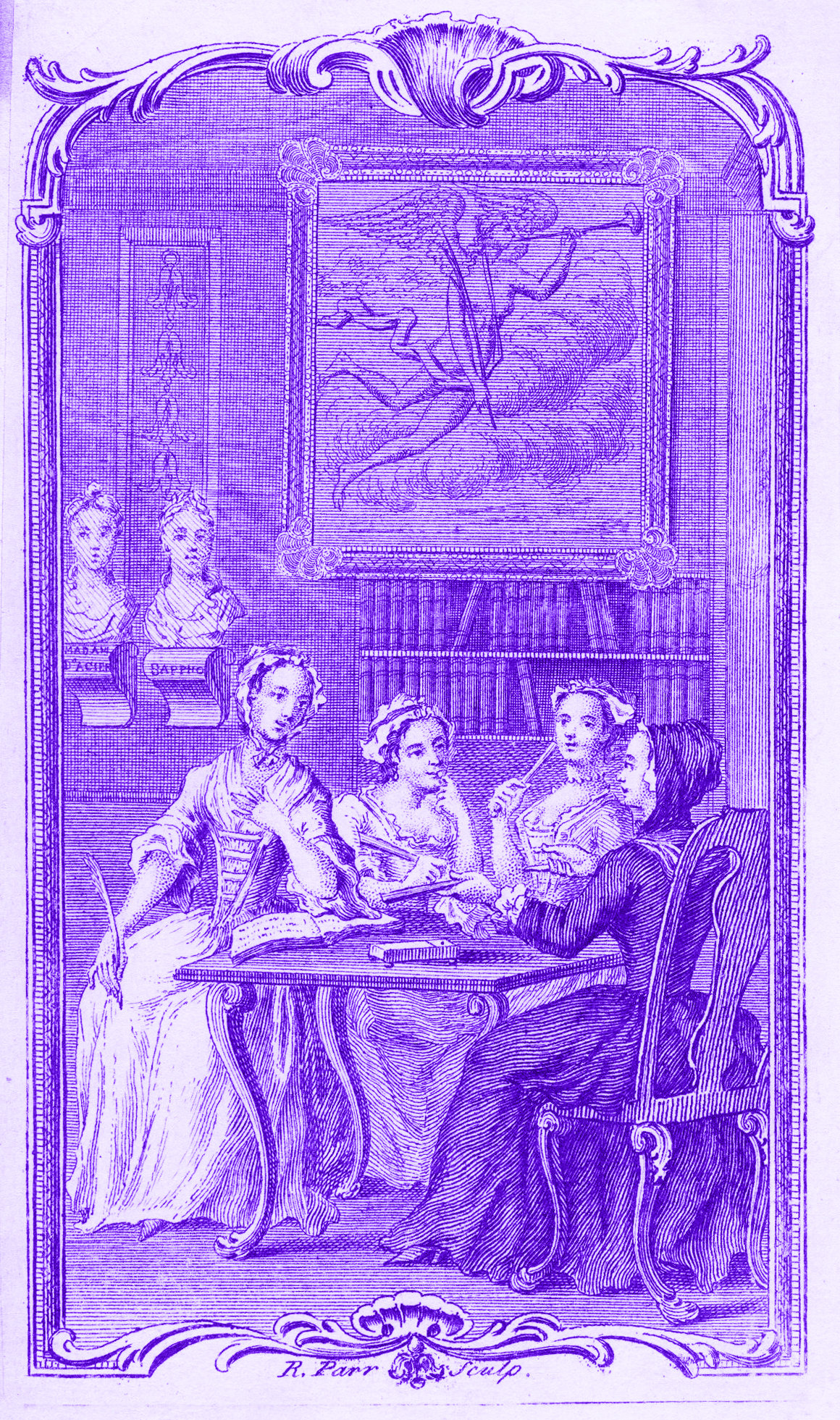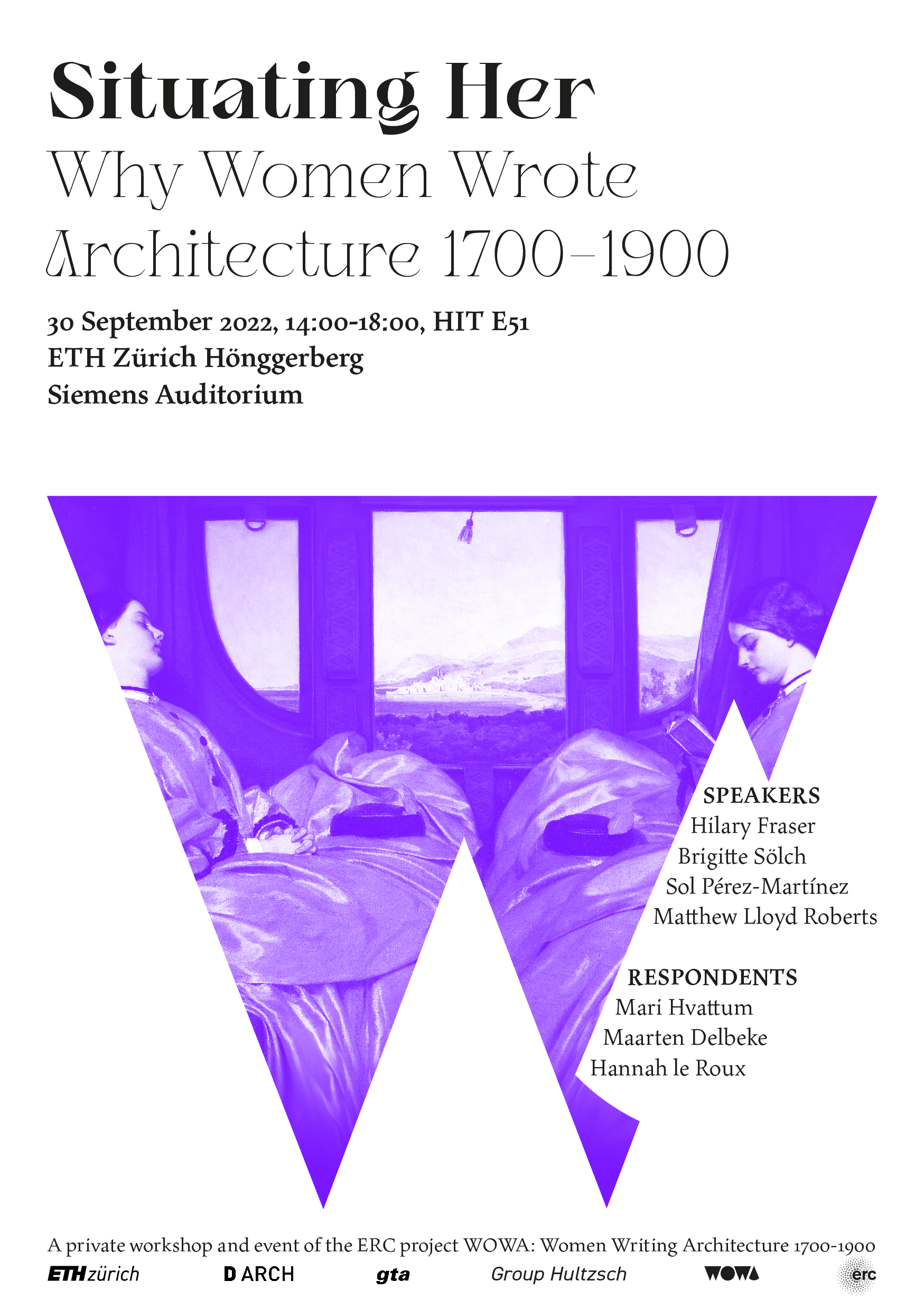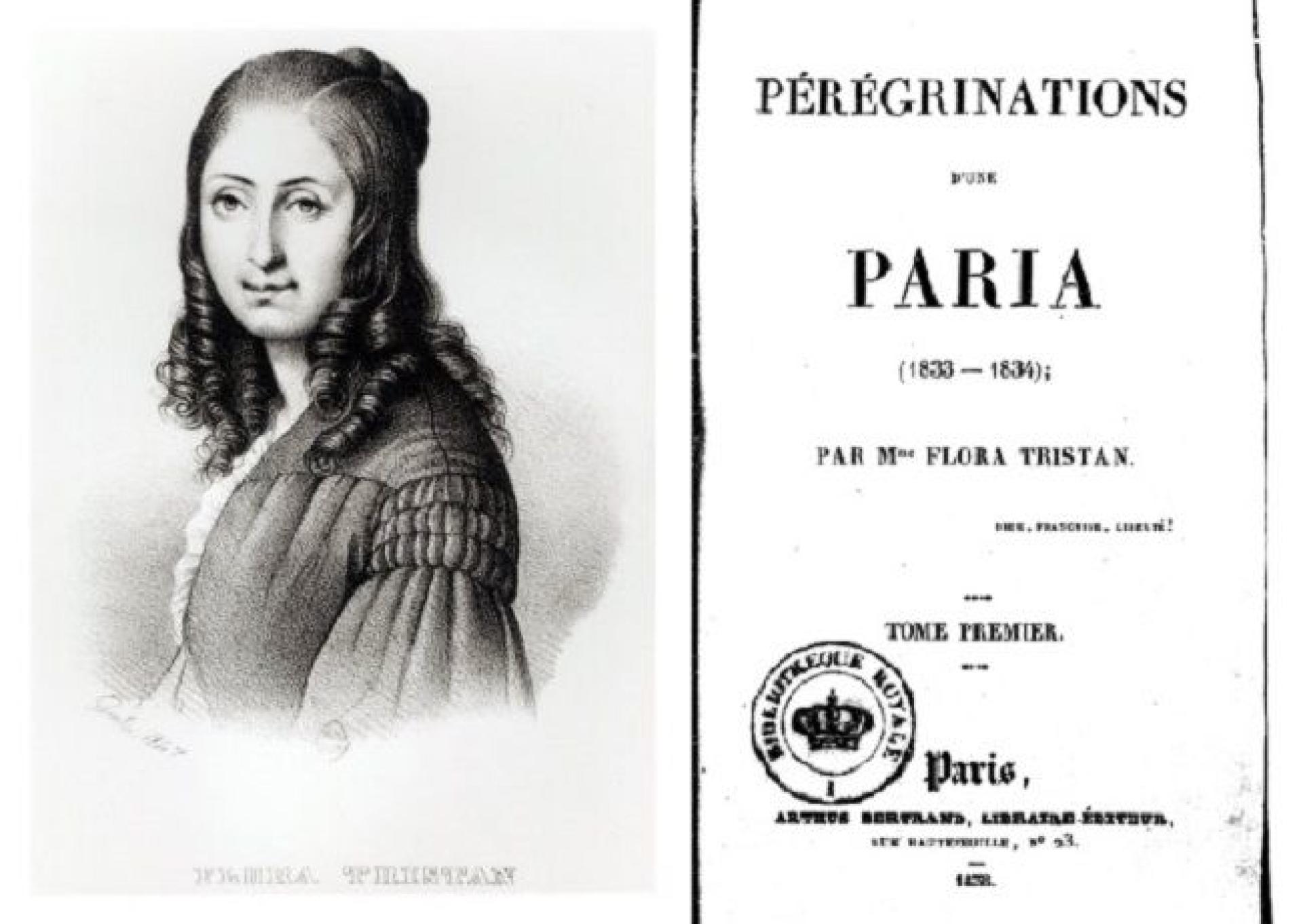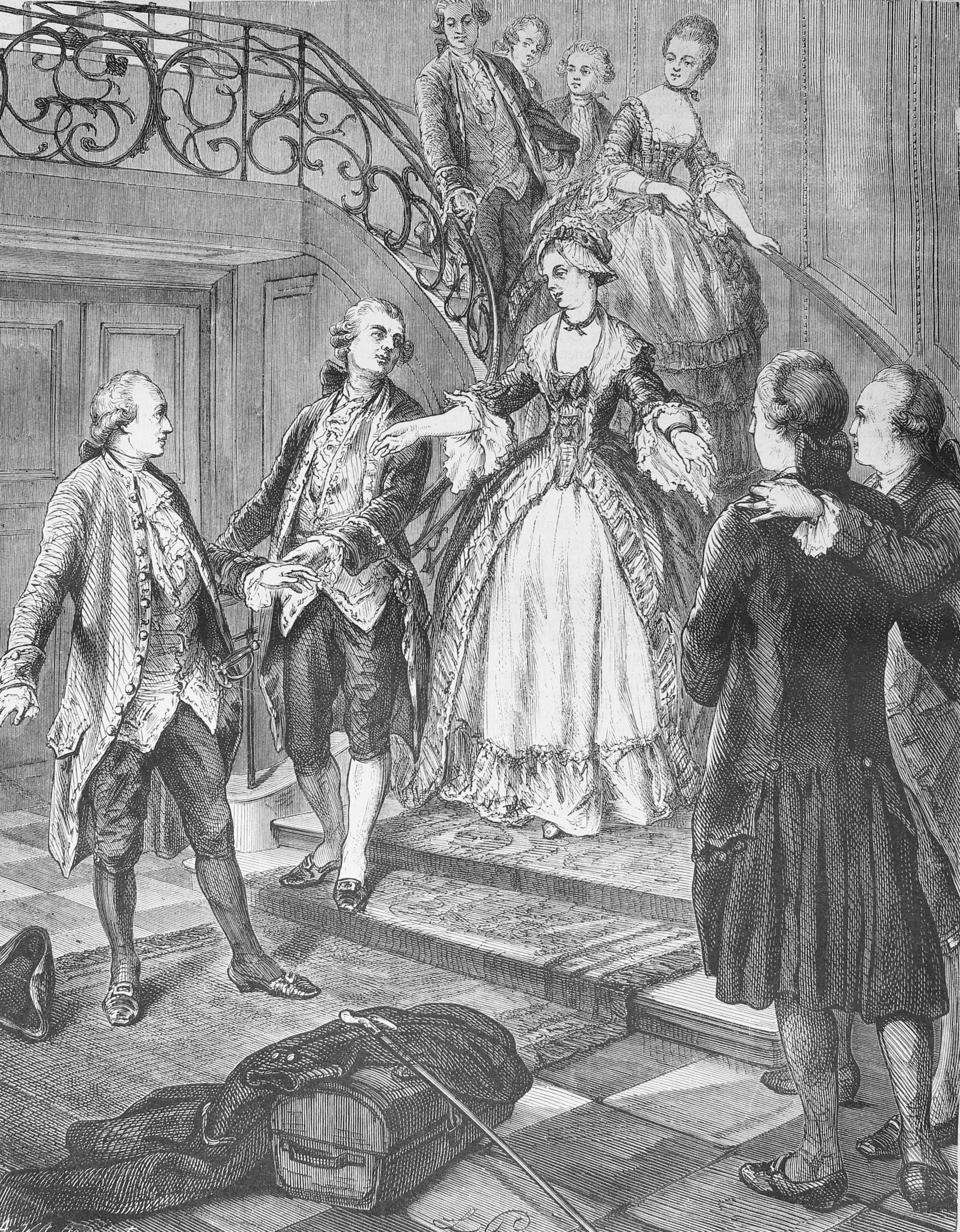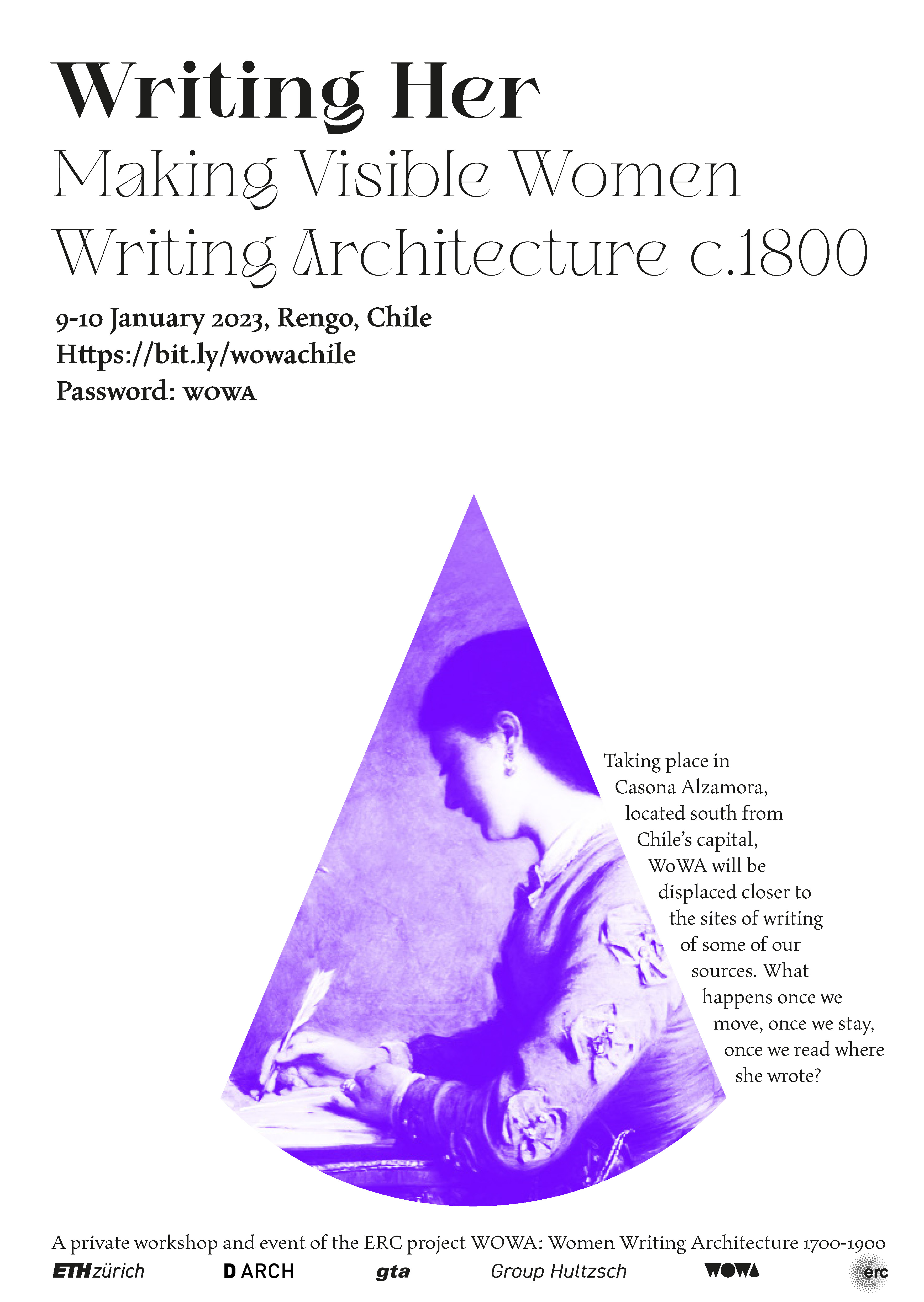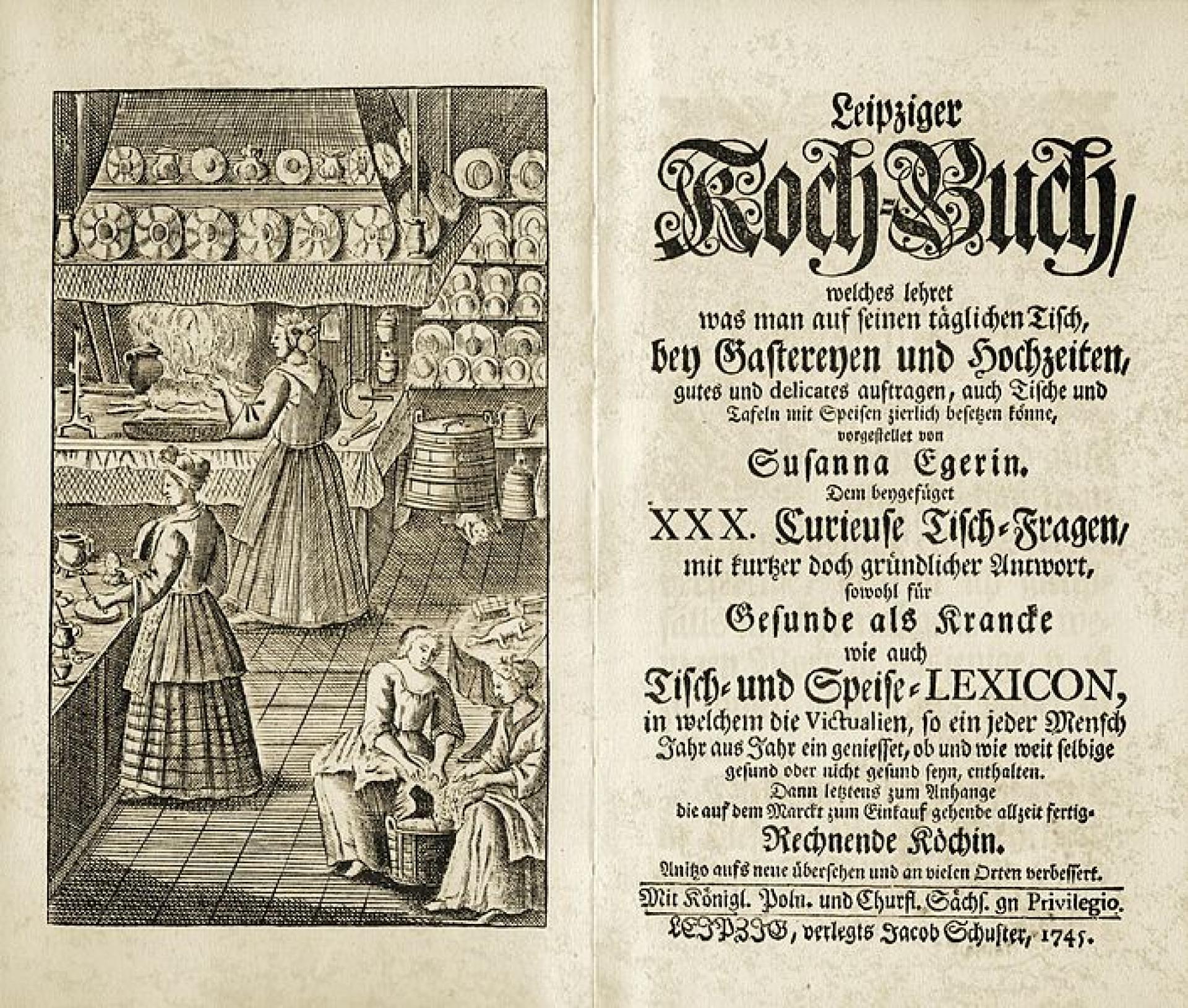About WoWA
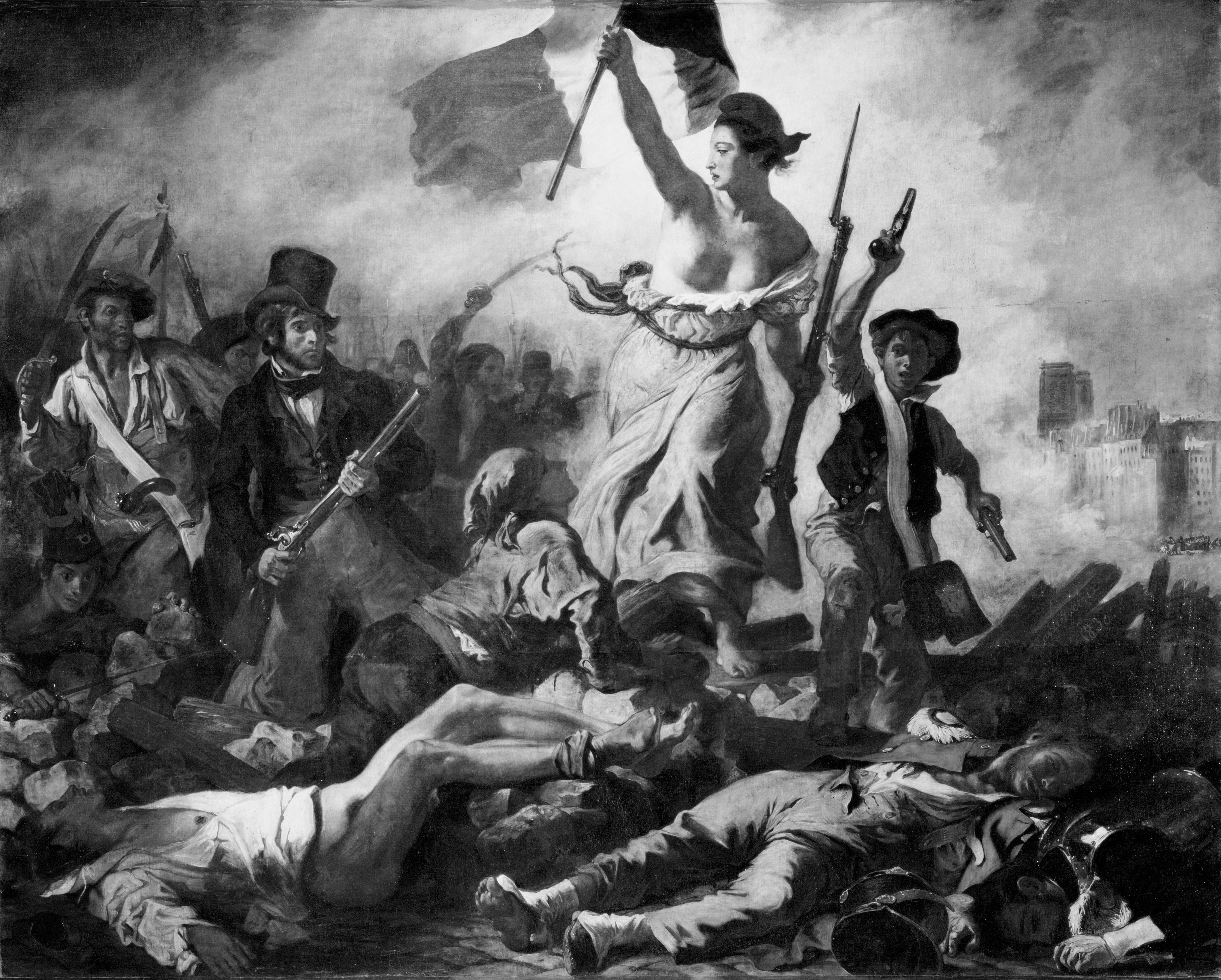 Source: Eugène Delacroix. July 28: Liberty Leading the People. 1830. Oil on canvas, 8'6¼" x 10'8" (2.60 x 3.25 m). Musée du Louvre, Paris.
Source: Eugène Delacroix. July 28: Liberty Leading the People. 1830. Oil on canvas, 8'6¼" x 10'8" (2.60 x 3.25 m). Musée du Louvre, Paris. Women Writing Architecture: Female Experiences of the Built 1700-1900*, short WoWA, studies female experiences of architecture as recorded in documentary writing drawn from specific regions in South America and Europe between 1700 and 1900. While architectural histories often focus on male-dominated processes of design and production, this project takes a new stance by unearthing women’s contributions to the architectural sphere through writing and editing.
While not part of the canon, articles, travelogues, domestic manuals, or pamphlets authored by women in the period consistently featured descriptions of or commentary on buildings and cities, but these have never been examined collectively by architectural historians. Through a combination of macro and micro research, close and distant reading, geographical mapping and tracing of experience, WoWA addresses this gap opening up a new corpus and presenting architecture’s past through the female eye.
*This project has received funding from the European Research Council (ERC) under the European Union’s Horizon 2020 research and innovation programme (Grant agreement No.949525).
*This project has received funding from the European Research Council (ERC) under the European Union’s Horizon 2020 research and innovation programme (Grant agreement No.949525).
Upcoming Events
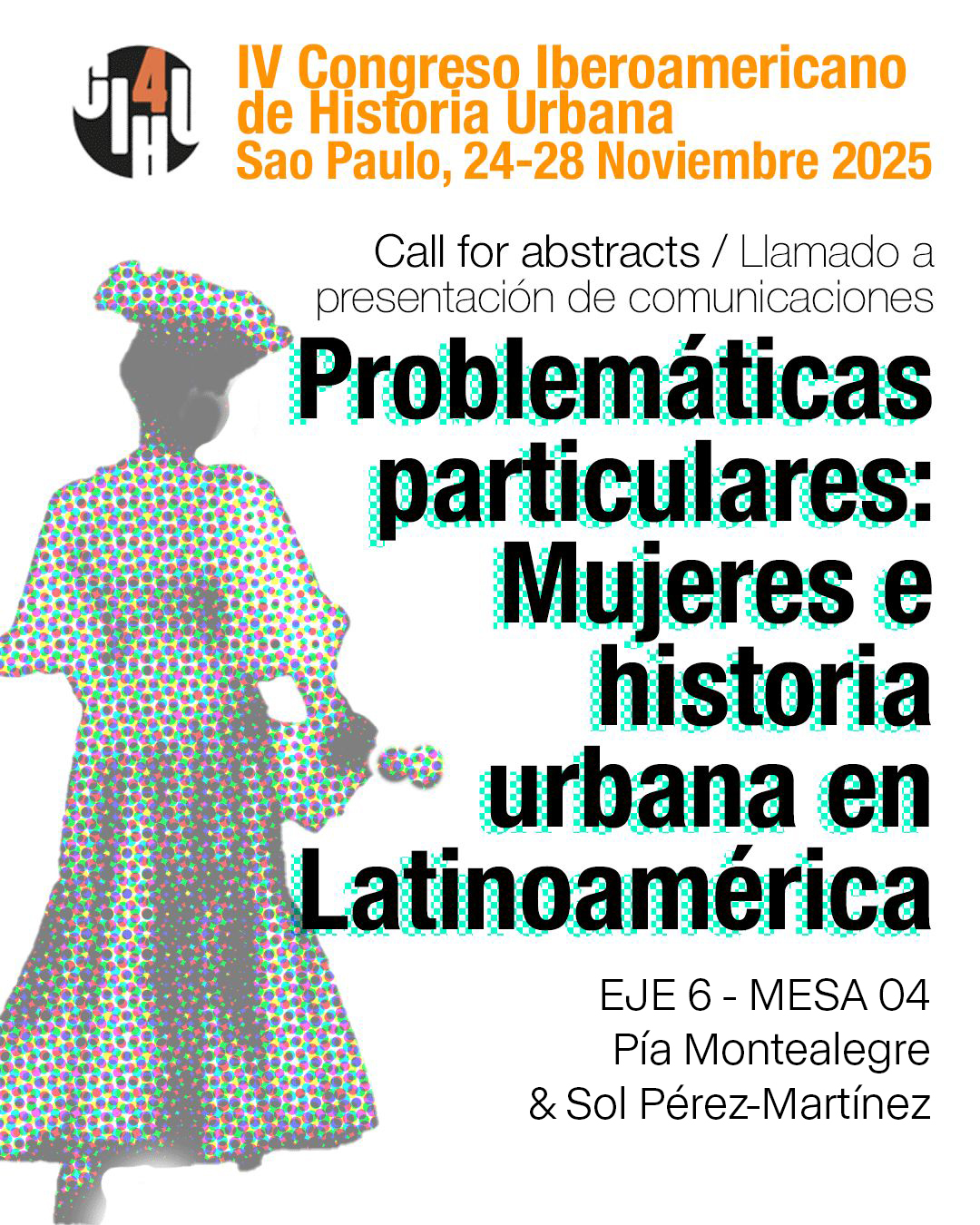
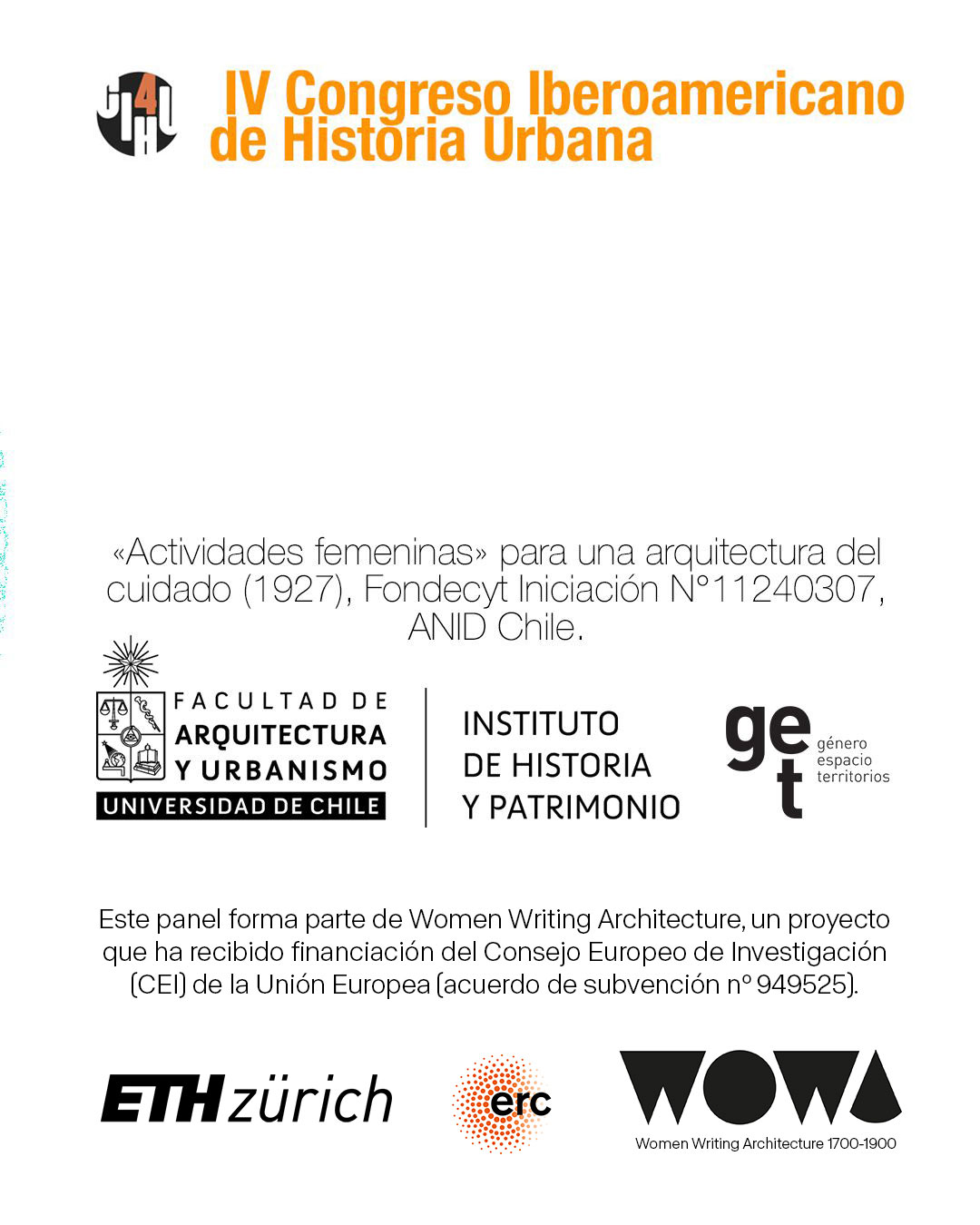
Particular problems:
Women and Urban History in Latin America – CIU4 Sao Paulo
SYMPOSIUM E6_04
4º Ibero-American Congress of Urban History
24-28 November 2025, Sao Paulo
CHAIRS
Pía Montealegre, Institute of History and Heritage, University of Chile, Chile. mmontealegre@uchile.cl
Sol Pérez-Martínez, ERC Women Writing Architecture 1700-1900, ETZ Zurich, Switzerland perezmartinez@arch.ethz.ch
KEYWORDS: Gender; Urban Space; Problems; Latin America; Historiography
ABSTRACT: The symposium seeks to bring together historiographical research that relates women and urban space from a gender-based approach. As Scott (1986, 2008, 2010) proposes, gender is understood here as an analytical category useful for historiography and that distinguishes its use from a "history of women" by observing power dynamics in particular. We wish to emphasize the specificity of this problem in a Latin American context, understanding this territory as a periphery that feeds both on the discussions in the global north, as it produces its own discourses based on its local reality. We understand urban space as a multi-scale problem, which has the city and their territories in its broadest framework, but which also involves the architecture of the buildings and reaches the dimension of the body as the first place to live (Mc Dowell, 1999). In this way, it seeks to involve historiographical research related to different scales, from territorial occupation, planning policies, urbanism, the renovation of cities to new buildings and their way of living them through objects and clothing. The historiographical approach restricts the time frame from the processes of conquest and colony and sets its limit in the twentieth century, understanding this period as critical for the configuration of a local reality in relation to a different culture. We are interested in researchers that emphatically ask themselves about their position in Latin American and, in relation but separated from the global north, can identify which particular problems and historiographical phenomena characterize their location. How do sociocultural contexts affect the configuration of gender issues and local feminisms and their deployment in the city? What role do issues such as the Catholic Church, the availability of goods and services, the family structure, the position of class and race, among others, play for the configuration of space from a gender-based approach? How does the construction of gender relate to the material reality of cities and cosmopolitan imaginaries? What cultural transfers occur between Latin American women and those of the global north that affect the configuration of space? This symposium invites you to contest these and other questions by emphasizing the particularities of the cases that help characterize the historiographical investigation of women in the Latin American context.
Problemáticas particulares: Mujeres e historia urbana en Latinoamérica – CIU4 Sao Paulo
SIMPOSIO E6_04
4º Congreso Iberoamericano de Historia Urbana, 24-28 Noviembre 2025, Sao Paulo
COORDINADORAS
Pía Montealegre, Instituto de Historia y Patrimonio, Universidad de Chile, Chile mmontealegre@uchile.cl
Sol Pérez-Martínez, Investigadora posdoctorante ERC Women Writing Architecture 1700-1900, ETZ Zurich, Suiza perezmartinez@arch.ethz.ch
PALABRAS CLAVE: Género; Espacio Urbano; Problemáticas; Latinoamérica; Historiografía
RESUMEN: El simposio busca reunir investigaciones historiográficas que relacionen a las mujeres y el espacio urbano desde un enfoque de género. Como plantea Scott (1986, 2008, 2010), se entiende aquí el género como una categoría analítica útil para la historiografía y que distingue su uso de una sola “historia de las mujeres” al observar particularmente el diferencial de poder. Se desea poner el acento en la particularidad de esta problemática en un contexto latinoamericano, comprendiendo este territorio como una periferia que tanto se alimenta de las discusiones en el norte global, como produce sus propios discursos en base a su realidad local. Entendemos el espacio urbano como una problemática multiescalar, que tiene a la ciudad y los territorios en su marco más amplio, pero que involucra a la arquitectura de los edificios y llega a la dimensión del cuerpo como el primer lugar que se habita (Mc Dowell, 1999). De este modo, se busca involucrar investigaciones historiográficas relacionadas a escalas como la ocupación territorial, las políticas de planificación, el urbanismo, la renovación de las ciudades mediante nuevos edificios y espacios públicos y su forma de vivirlos a través de los objetos y las vestimentas. El enfoque historiográfico restringe el marco temporal desde los procesos de conquista y colonia y fija su límite en el siglo XX, comprendiendo este periodo como crítico para la configuración de una particularidad local en relación con un mundo otro. Interesa que los trabajos se pregunten enfáticamente respecto a su posición latinoamericana y, en comparación al norte global, puedan identificar qué problemáticas específicas y particulares caracterizan su localización en tanto fenómenos historiográficos. ¿Cómo influyen los contextos socioculturales en la configuración de problemáticas de género y feminismos locales y su despliegue en la ciudad? ¿Qué rol juegan asuntos como la iglesia católica, la disponibilidad de bienes y servicios, la estructura familiar, la posición de clase y raza, entre otros para la configuración del espacio desde una perspectiva de género? ¿Cómo se relaciona la construcción del género con la realidad material de las ciudades y los imaginarios cosmopolitas? ¿Qué transferencias culturales se producen entre las mujeres latinoamericanas y las del norte global que inciden en la configuración del espacio? Este simposio invita contestar estas y otras preguntas haciendo énfasis en las particularidades de los casos que ayuden a caracterizar la investigación historiográfica de las mujeres en el espacio latinoamericano.
Events

Lines of Enquiry
Architecture & Researchgta Lecture Series 2025
ETH Zurich
Hosted by the Institute for the History and Theory of Architecture (gta) at ETH Zurich, Lines of Enquiry is a new lecture series that provides a platform for postdoctoral researchers to share their current work. Focusing on original and critical approaches to architecture and its histories, the series invites scholars to present emerging architectural research and experimental methodologies. Lines of Enquiry aims to open up space for dialogue and exchange with colleagues and students of the Department of Architecture at ETH Zurich.
All lectures will be held at HIL E3, at ETH Zurich Hönggerberg campus, CH8093
Spring Series
Eric Häusler
Tokyo, New York, Zurich: Reconstructing Past Urban Futures
15th May 2025, 18.00, HIL E3
Cathelijne Nuijsink
Anyone, Anywhere, Anytime? Revisting the Any Conferences (1991-2000)
5th June 2025, 18.00, HIL E3
Autumn Series
Sol Pérez Martínez
2nd October 2025, 18.00, HIL E3
Frederike Lausch
6th November 2025, 18.00, HIL E3
Eric Häusler
Tokyo, New York, Zurich: Reconstructing Past Urban Futures15th May 2025, 18.00, HIL E3
Cathelijne Nuijsink
Anyone, Anywhere, Anytime? Revisting the Any Conferences (1991-2000)5th June 2025, 18.00, HIL E3
Autumn Series
Sol Pérez Martínez
2nd October 2025, 18.00, HIL E3Frederike Lausch
6th November 2025, 18.00, HIL E3
Publications

Hultzsch, Anne. ‘WoWA and its ‹Feminist bricks›: Building Histories’. kritische berichte - Zeitschrift für Kunst- und Kulturwissenschaften 52, no. 1 (14 March 2024): 73–81. https://doi.org/10.11588/kb.2024.1.101461.
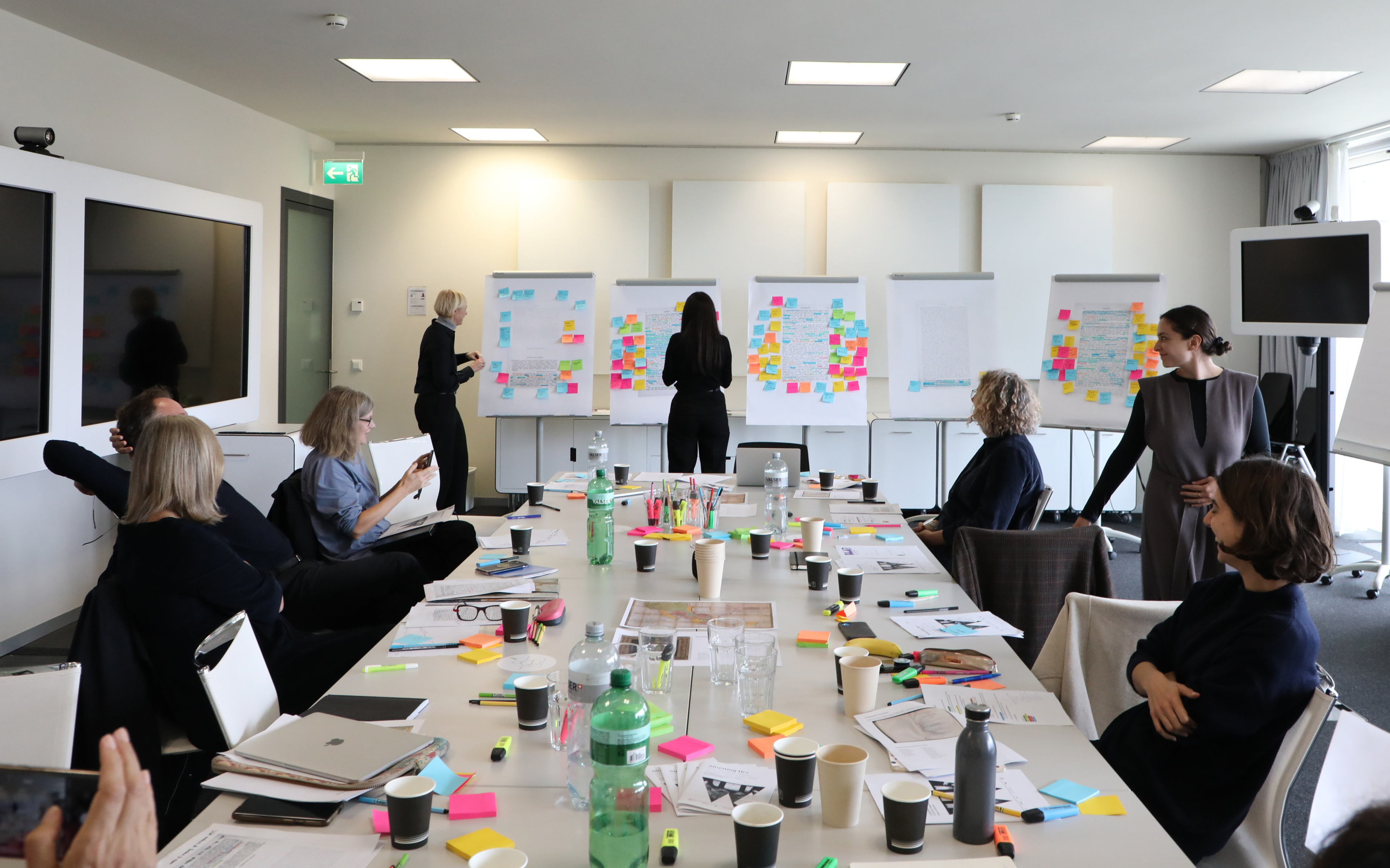
 Hultzsch, Anne, and Sol Pérez Martínez. ‘Reading-With: A Collaborative Method for Inclusive Architectural Histories’. Architectural Histories 11, no. 1 (12 September 2023). https://doi.org/10.16995/ah.10332.
Hultzsch, Anne, and Sol Pérez Martínez. ‘Reading-With: A Collaborative Method for Inclusive Architectural Histories’. Architectural Histories 11, no. 1 (12 September 2023). https://doi.org/10.16995/ah.10332.
Pérez-Martínez, Sol. ‘Mujeres haciendo espacio en Chile 1800 - 1900: Santiago y la poeta popular Rosa Araneda’. _Revista Historia y Patrimonio_ 2, no. 2 (30 June 2023): 1–30., (https://doi.org/10.5354/2810-6245.2023.70518).
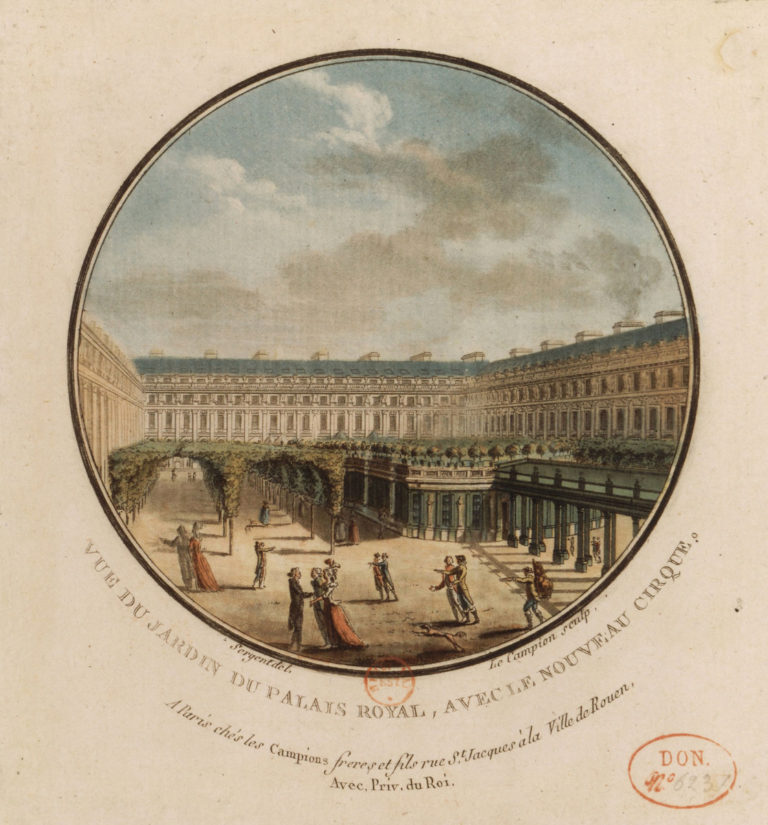
Hultzsch, Anne. ‘The City “En Miniature:” Situating Sophie von La Roche in the Window’. Journal 18, no. Issue 15 Cities (Spring 2023).https://www.journal18.org/.
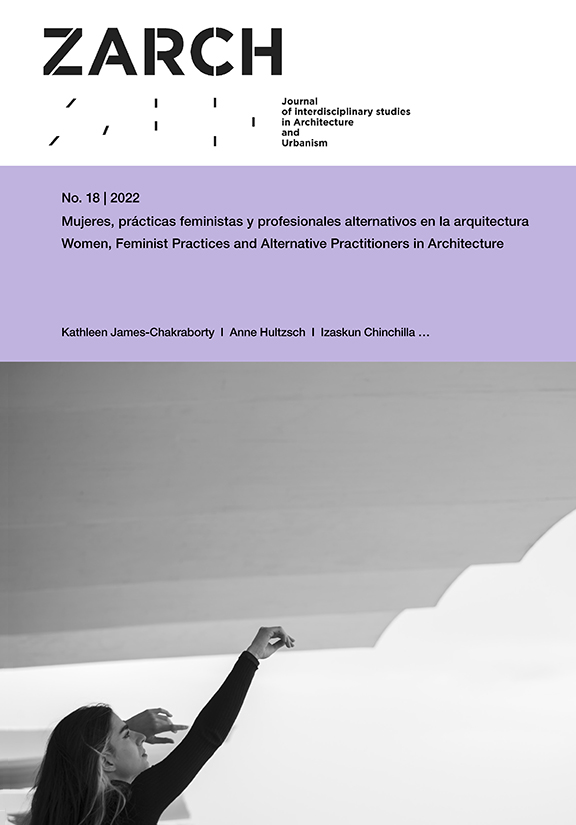 Hultzsch, Anne. ‘Other Practices: Gendering Histories of Architecture / Otras Prácticas: Historias de La Arquitectura Con Perspectiva de Género’. ZARCH, no. 18 (2 September 2022): 30–41.(https://doi.org/10.26754/ojs_zarch/zarch.202218696).
Hultzsch, Anne. ‘Other Practices: Gendering Histories of Architecture / Otras Prácticas: Historias de La Arquitectura Con Perspectiva de Género’. ZARCH, no. 18 (2 September 2022): 30–41.(https://doi.org/10.26754/ojs_zarch/zarch.202218696).
